
In politics, pork is power.
That’s why Democrats want to bring back pork in the form of “earmarks” after they were banned 11 years ago following several embarrassing scandals.
Leading the parade for the return of earmarks is Maryland Rep. Steny Hoyer (D), the House majority leader. Hoyer views them as advocacy tools for members of Congress and incentives to line up votes for major legislation. Quarrelsome Republicans, notably the Freedom Caucus, regard earmarks as illicit handouts that would empower Democrats.
In a broader sense, Hoyer is moving to reclaim the prerogative of dispensing pork to members of Congress that, since the abandonment of earmarks more than a decade ago, has passed to the White House as the purveyor of pork and the collector of IOU chits.
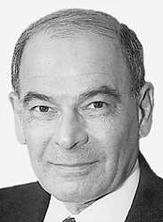
Frank A. DeFilippo
Pork is pork, by any other name, depending on who’s doling it out and whose district it benefits. In one congressman’s district earmarks are an essential public service, in another’s they’re just plain pork. Earmarks technically differ from pork in that they are specific projects. Pork is discretionary spending. But pork is pork, no matter how lean it’s trimmed.
Pork-barrel projects are traditionally part of the political system of rewards and punishments. It was how things got done.
Back when Lyndon Baines Johnson ruled America like a benevolent dictator, he used presidential powers and political favors to bend reluctant legislators to his imperial will.
Johnson established the nation’s space center at Houston as a favor to his home state and its congressional delegation. When a Texas ranching family wanted to dispose of a piddling 22,000 acres of land, the waterfront acreage suddenly morphed into Corpus Christi Naval Air Station.
Johnson passed the Civil Rights Act with help from Republican congressional leaders Everett Dirksen and Charles Halleck at God knows what cost to the treasury. He enacted Medicare by raising peanut import quotas to attract the support of hostile Southern legislators by protecting an important regional agricultural industry against cheap, foreign imports.
And he chided a liberal anti-Vietnam War senator, Frank Church, who was cozy with the press, that the next time he needed a dam in Idaho he should call Walter Lippmann (the prominent syndicated columnist).
It used to be said that a good politician is one who stays bought. In the White House and on Capitol Hill, and in statehouses across the nation, pork was a great persuader. Pork and patronage, along with political bosses, are what made the complex system of governance tick like a Tag Heurer.
And no one since Franklin Delano Roosevelt, Johnson’s hero, was a better high-performing master of the system and all of its levers of power than Johnson.
Say what you will about the bossed-and-bought politics of yesterday, it certainly beats the ideological stand-offs that choke government today, and the limp leadership that can’t even gather enough votes to pass its own legislation.
This is no exercise in political taxidermy. It’s a comparison of how things got done when the system worked to everyone’s benefit. That is, until the elimination of the tools of the trade that greased the way for the otherwise creaky and vendible system to give lawmakers tangible rewards they could take home and crow about.
They were called earmarks, and pork — bridges, roads, dams, buildings, airports, post offices, parklands, jobs, military installations, contracts, leases, agencies, public transit, and whatever else a community or Congressional district might need that could, at the same time, boost the standing of its sponsoring lawmaker.
This was especially true in the 1950s-60s, when Baltimore City had a population of nearly 1 million and three Democratic congressmen of its very own who held three top House committee chairmanships that controlled tons of pork – George H. Fallon, Public Works; Edward A. Garmatz, Merchant Marine and Fisheries; and Samuel N. Friedel, Government Operations.
Ask yourself: Are we better off now than when pork and patronage oiled the system and political bosses made certain that elected officials did their jobs or face retribution at the polls? The answer depends on whether you prefer results, or transparency and paralytic government.
The sprawling Social Security Administration complex at Woodlawn, outside of Baltimore, didn’t wind up in Maryland because of climate or geography. And the NSA buildings at BWI-Thurgood Marshall Airport didn’t just land there by accident. Nor did the 16 other federal installations spread across Maryland tumble out of a thwacked piñata.
Baltimore’s aging Inner Harbor is mostly a generous bequest of the federal and state governments. During the presidency of Jimmy Carter, Urban Development Action Grants (UDAGs) flew through Baltimore like last week’s snowflakes. One visible reminder is the Inner Harbor’s house of mirrors, the Hyatt Hotel.
The Baltimore Metro system, the World Trade Center and the Convention Center were gifts from Gov. Marvin Mandel (D) to Mayor William Donald Schaefer, buddies from the clubhouse of political major domo Irv Kovens. The Edward A. Garmatz Courthouse and the George H. Fallon Federal Office Building were federal bonanzas and examples of prime pork.
The elimination of earmarks was gradual over a decade until they were finally banned as an embarrassment by then-House Speaker John Boehner (R-Ohio). An example that is often cited is their use by the late Rep. John Murtha, whose name is plastered on projects across his benighted Pennsylvania district.
Murtha built a state-of-the-art airport in Johnstown, population 20,000, which is 11 miles from Pittsburgh, which has its own state-of-the-art airport. Another is the bridge to nowhere in Alaska. And yet another is the use of public parkland, as pork, by Rep. Phil Burton, Democrat of California, to leverage votes.
At the time, Boehner described the ban of earmarks as a “critical step to restore public trust.” And in the process, Boehner destroyed his own speakership. He was forced to resign because he could no longer deliver the pork chop. Boehner’s successor as speaker, Paul Ryan, considered restoring earmarks, but he was soon gone, too.
The result of the ban is a non-performing Congress, though there are some loopy ideologues, such as members of the Freedom Caucus, the far-right successors to the tea party, who couldn’t be budged with a bulldozer. Restoring the euphemistically camouflaged form of patronage – a legalized and highly productive method of bribing lawmakers for their votes – is illegal in the marketplace but perfectly acceptable in Congress.
Naughty or nice in Annapolis
In the Maryland State House, the guidebook to which legislators have been naughty or nice is the annual Capital Budget, the index to proposed bricks-and-mortar projects. In it are found the pork-barrel projects the governor is dispensing either as current reward, or down payment on future votes, to pliant legislators.
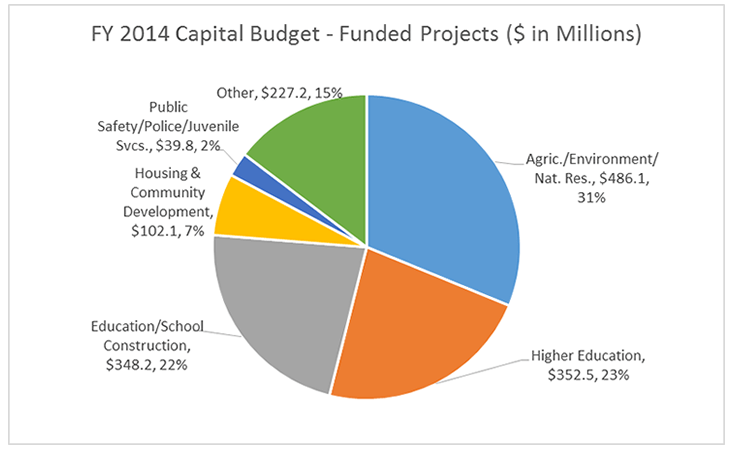
An illustration of what the state’s Capital Budget can bring.
There are listed such items as duck decoy museums, local theaters and galleries, arts group projects and, of late, the social needs – but with a cautionary non-religious wink – of Black churches across Maryland. These include social halls, outreach facilities, shelters, and recreational facilities, projects that cannot be identified as having religious significance.
From the state’s Capital Budget to Baltimore, for example, came the Hippodrome Theater, the Meyerhoff Symphony Hall, and the Reginald F. Lewis Museum as well as partial funding of Center Stage.
Add to the missing link of greasing the system the mighty dinosaur political machines – the Daley machine of Chicago, the Greene machine of Philadelphia, the Lawrence machine of Pittsburgh, the Pollack, and later the Kovens, machines of Maryland, the (Harry) Byrd machine of Virginia, the other (Robert) Byrd machine of West Virginia, the earlier Brown (father of Jerry Brown) machine of California, and all of the other urban political organizations of another era, and they could summon up enough votes on Capitol Hill to deliver a president’s legislative package bedecked with ribbons and votes to spare. (You can bet that when Johnson needed votes, he didn’t call the Senate chaplain.) Members of Congress usually owed their jobs, in part, to the political bosses back home who turned out the vote on election day.
To be historically correct, the gradual fade-out of political organizations actually began with the New Deal and FDR and the wholesale use of pork and patronage. To ease the pain of the Great Depression, government began adopting social welfare programs that assumed the functions of the pollical machines and precinct organizations – food baskets at holidays, help with heating costs, legal assistance, patronage jobs. They were replaced with massive public works projects – pork – to provide jobs as well as infrastructure improvements. (The Ambassador apartment building in the Tuscany-Canterbury section of Baltimore was built by the WPA during the Great Depression.)
And continuing into the revolutionary 1960s, government began to subsidize activist community and neighborhood organizations, that, more often than not, challenged and defeated machine-sponsored incumbents and candidates. Government, in a sense, bit the hands that fed it.
For officeholders of both parties, the first law of politics is survival. And especially for endangered Republicans, who can’t decide between Trump and other limited options, restoration of earmarks might be the safest way to stay alive, with visible payoffs for the folks back home. Earmarks benefit constituents and communities as well as their sponsors.

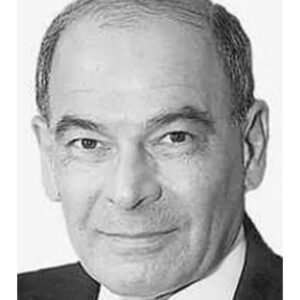
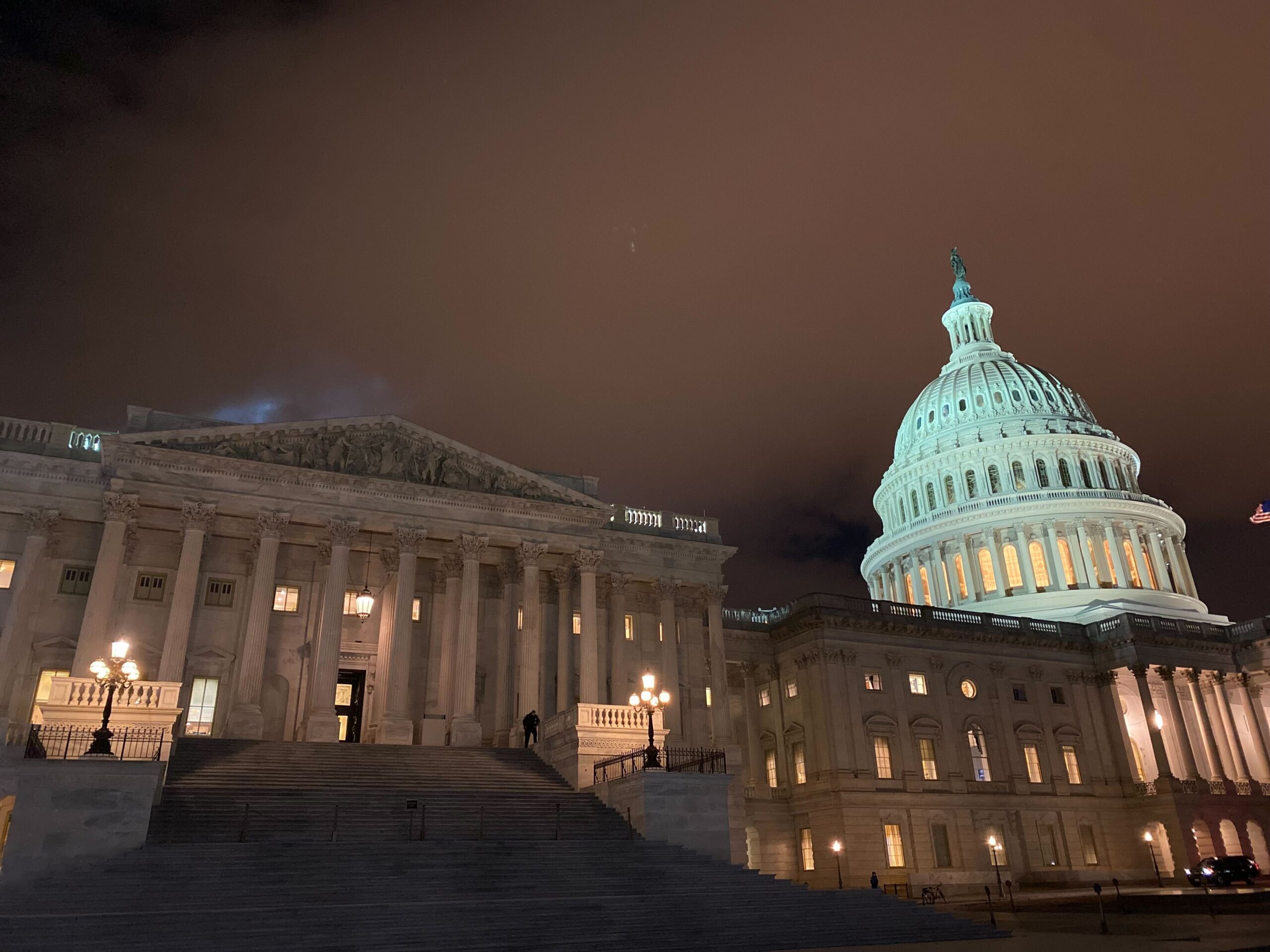
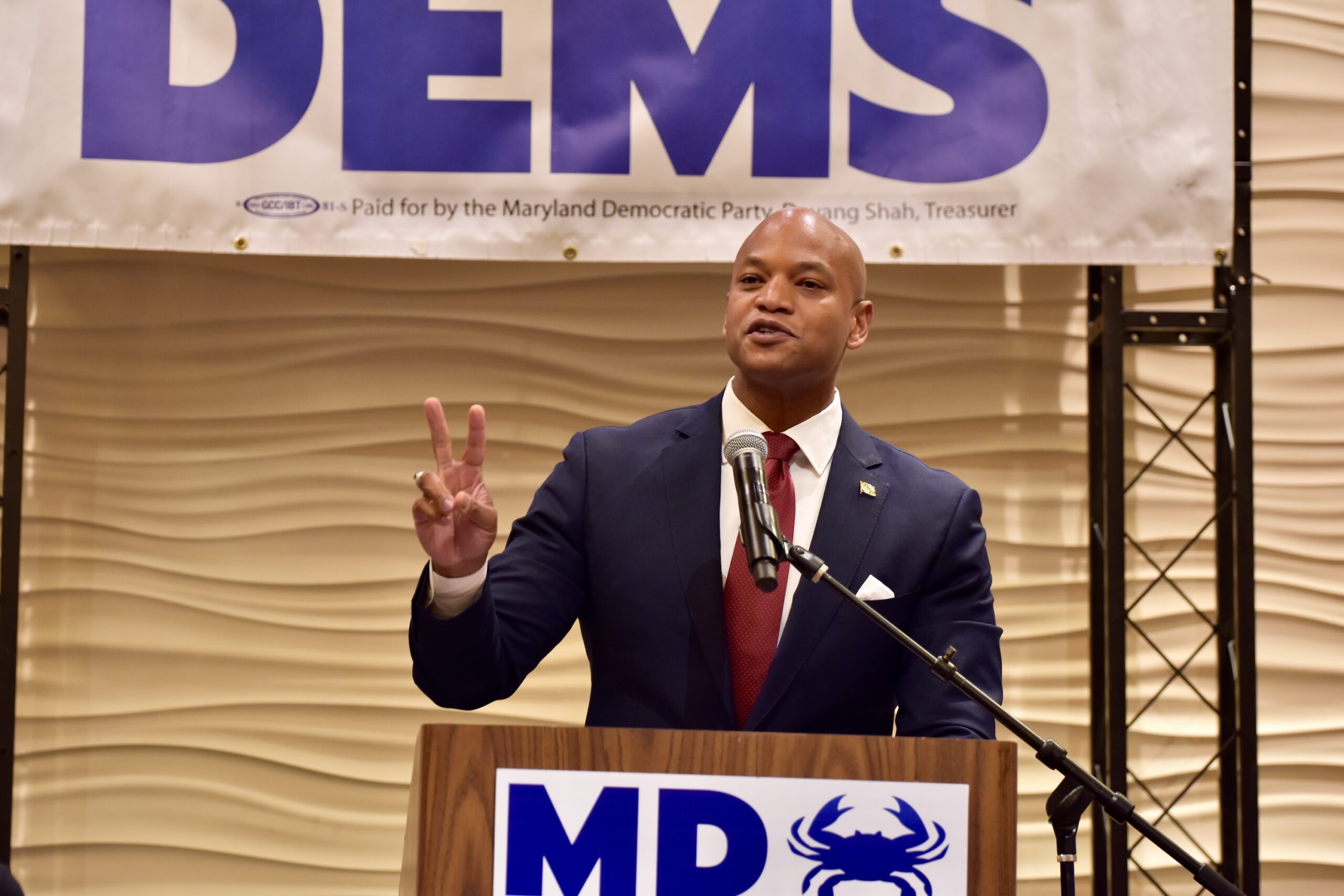
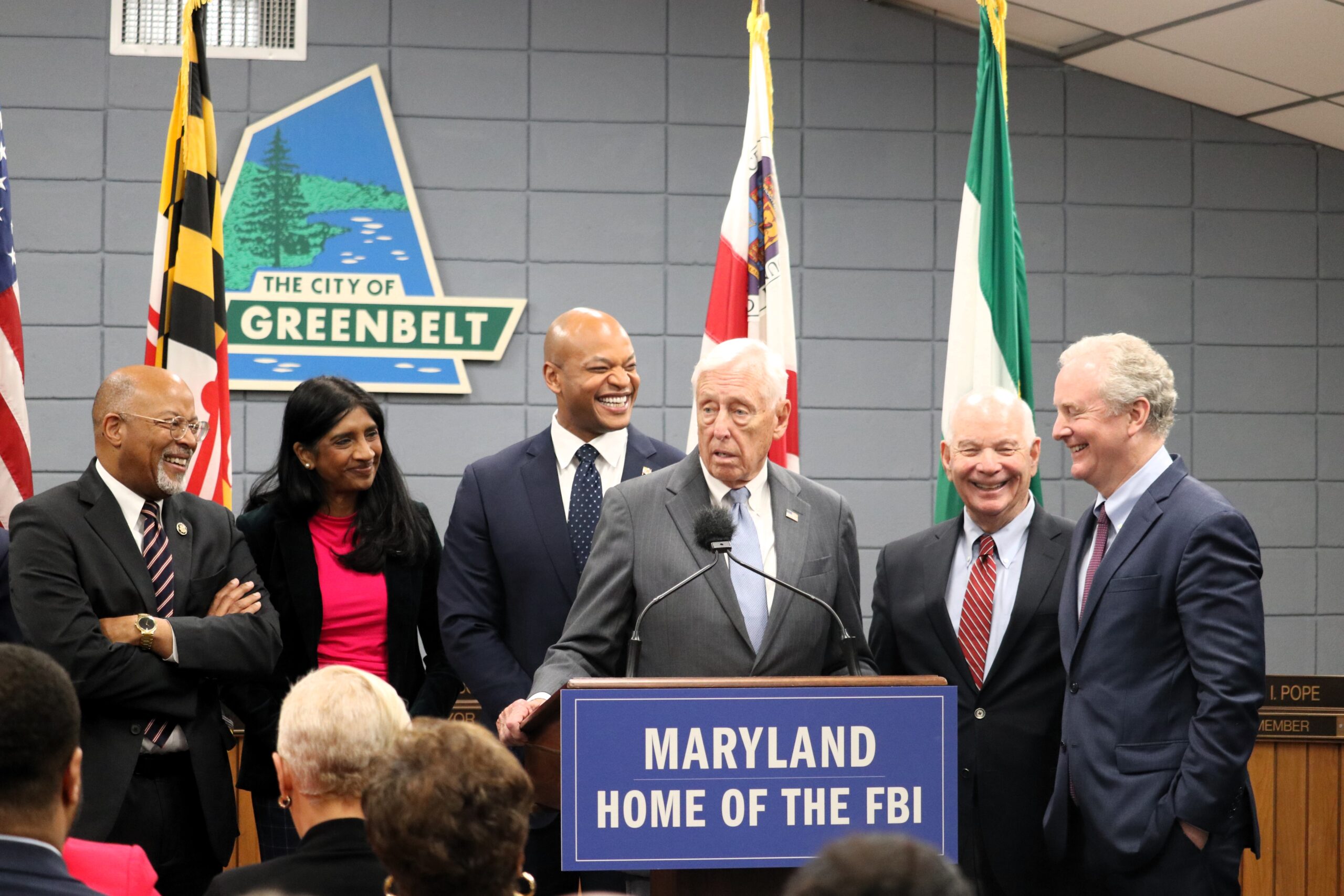
 Creative Commons Attribution
Creative Commons Attribution